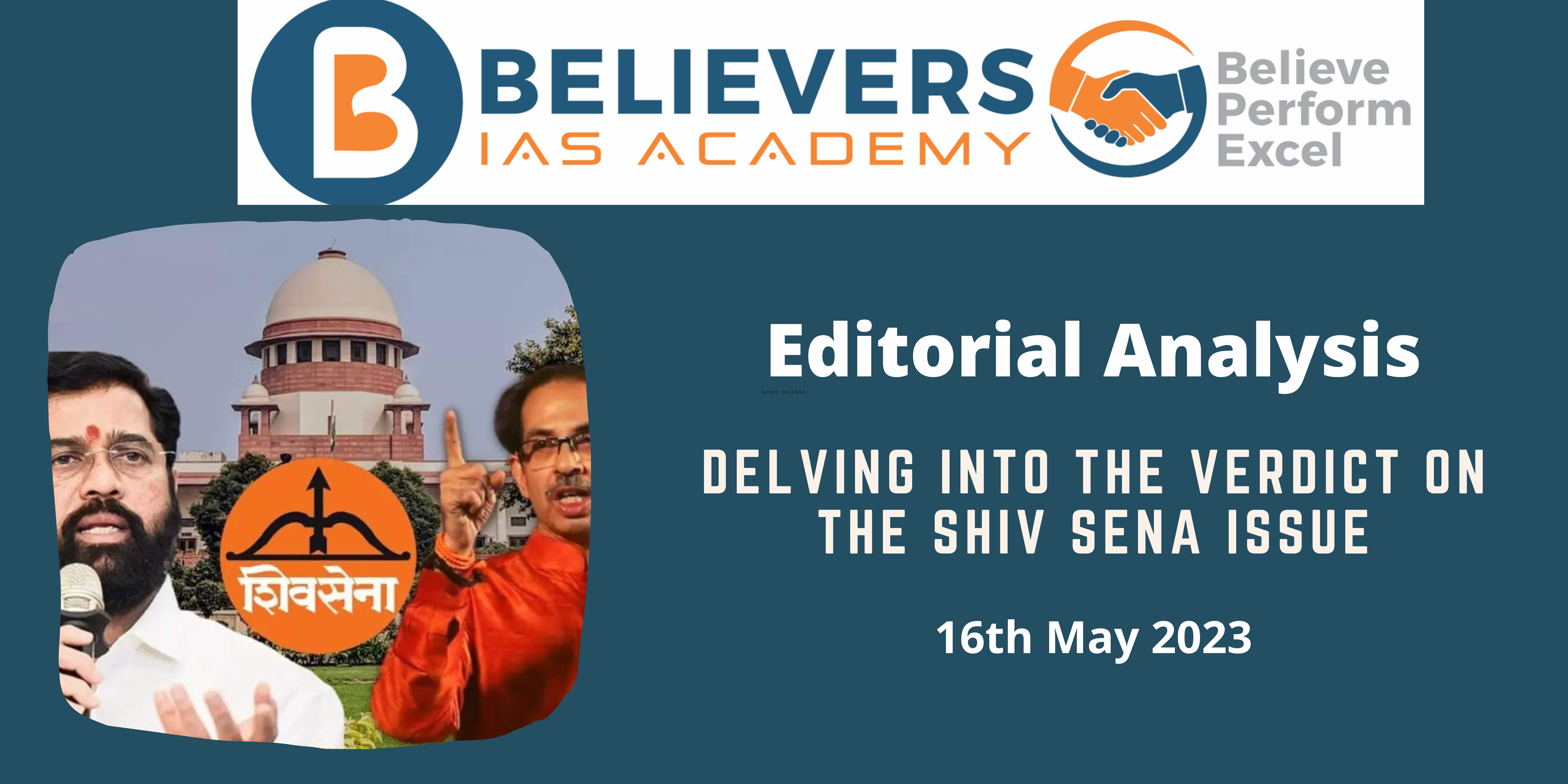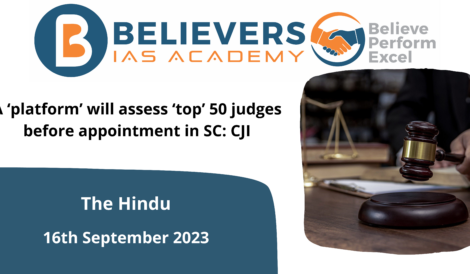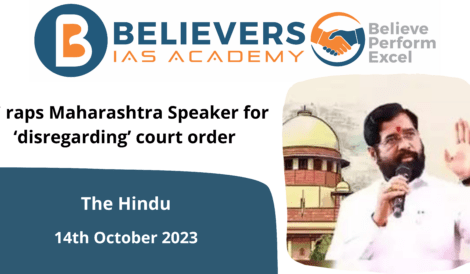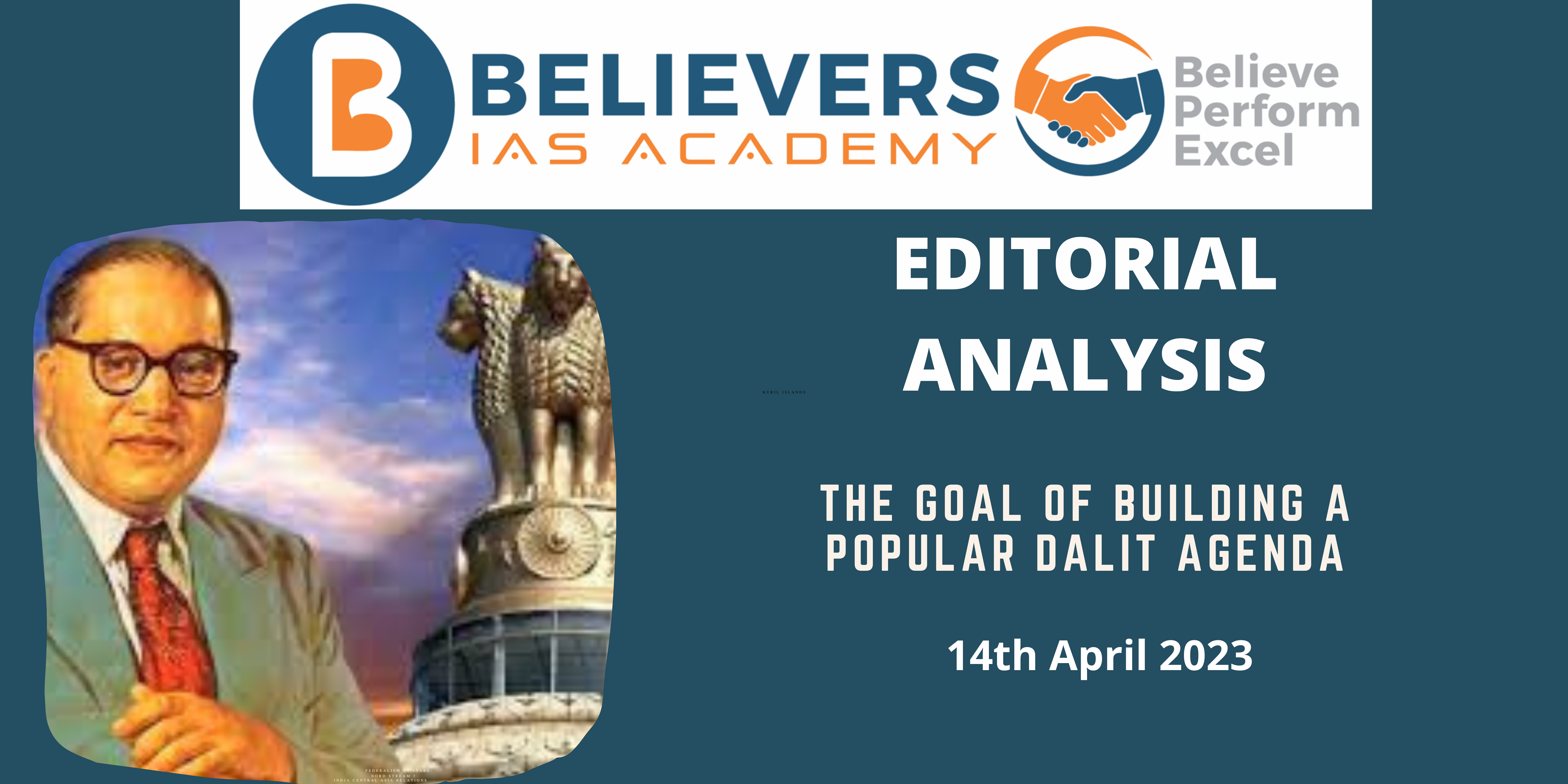Delving Into The Verdict On The Shiv Sena Issue
Context:
The Maha Vikas Aghadi (MVA) government, led by Uddhav Thackeray, was overthrown in the middle of 2022 after the Supreme Court ruled unanimously that the then-Gov. Bhagat Singh Koshyari “erred” in calling for a trust vote. This decision effectively paved the way for disqualification proceedings against Maharashtra Chief Minister Eknath Shinde for leaving the Shiv Sena.
Points to Ponder:
The floor test was wrong in law:
- In the ruling, the Maharashtra government’s decision to ask for a floor test is criticised as being unlawful.
- According to the court, the Governor lacked factual evidence to show that the current administration had lost the House’s support.
- But because it is within his constitutional authority, the court accepts the Governor’s decision to invite Eknath Shinde to form a rival administration.
- The research contends that the court might have missed the long-term effects of the Governor’s illegal request for the floor test, which resulted in the establishment of an alternate administration.
- It implies that the morality of the case was not taken into account by the court.
Validity of whip:
- Whips were given to members of both Shiv Sena groups, and each side filed a disqualification petition against the other.
- The court reiterates that the Speaker should make first decisions regarding disqualification petitions when referring the case back to him or her.
- By claiming that when a party splits, two factions form and that no one faction can be regarded as the party, the court creates ambiguity.
- The research contends that the Tenth Schedule of the Constitution envisions an original political party and factions that come from a split rather than two competing factions.
- It claims that Uddhav Thackeray’s Shiv Sena is the first political party, has the right to issue a lawful whip, and can disqualify members who disobey his whip.
- According to the study, to offer clarity and avoid uncertainty, the court should have specifically indicated that Uddhav Thackeray’s party is the original political party.
Lack of clarity in the judgment:
- The analysis notes that the explanation to paragraph (2)(1) of the tenth schedule, which specifies the party affiliation of a defecting member, was not addressed by the court.
- It implies that the court ought to have taken into account this explanation, according to which every member of the Shinde group is a member of the Shiv Sena, the political organisation founded by Uddhav Thackeray.
- The analysis contends that the court’s mention of factions and the Speaker’s requirement to identify the true party confuse the issue.
- It emphasises that the anti-defection law’s goals are to hold reneging lawmakers accountable and safeguard political parties from instability and that the Speaker’s choice should be based on the Tenth Schedule.
Similar Topics:
Governor’s Decision To Call Floor Test Wrong
Tamil Nadu Governor Okays Re-Adopted Bill Against Online Gambling




